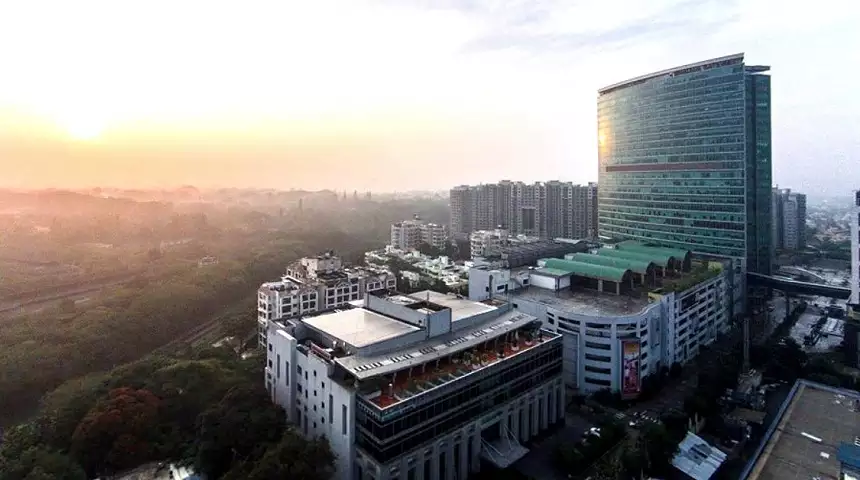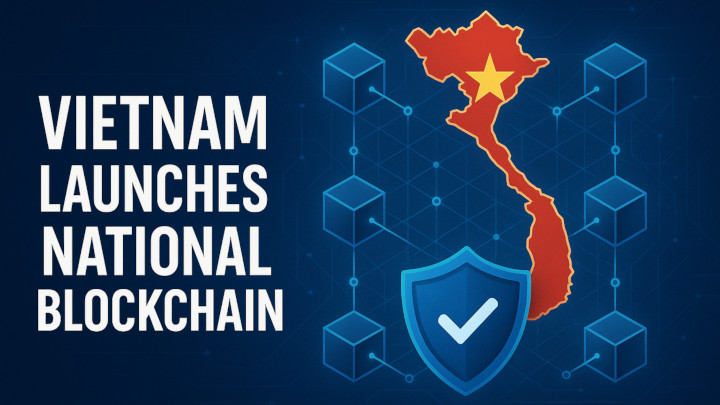April 14, 2025
Developer Salaries in APAC’s Outsourcing Industry: Where Are the Best IT Talent Hubs?
The Asia-Pacific (APAC) region has long been a dominant force in the IT outsourcing industry, offering cost-effective and high-quality software development services to businesses worldwide.

Countries like India, Vietnam, and Indonesia have established themselves as top outsourcing destinations, attracting companies looking to optimize operational costs while accessing skilled IT talent.
However, developer salaries across APAC vary significantly due to factors such as cost of living, market demand, specialization, and economic conditions.
In this article, Dirox will compare salaries in key outsourcing hubs, highlighting the advantages and challenges of each market and providing insights into where businesses can find the best value for IT services.
Key Factors Affecting Developer Salaries in APAC’s Outsourcing Industry
1. Cost of Living vs. Salary Expectations
Salaries in outsourcing markets are generally lower than in Western countries due to a lower cost of living. However, as economies grow and developers gain experience, wages gradually rise.
According to Uplers’s India Salary Guide, the average salary of a front-end developer in India (with over 5 years of experience) is reportedly $2941 per month. This number is more than 4 times lower than in the US where the median salary of front-end developers with the same experience is reported at $12,210 per month.
Despite the giant gap, Indian developers can still secure a solid lifestyle thanks to the difference in the purchasing power.
Similarly, thanks to an even lower cost of living, you can hire a developer in Vietnam from $1,334 to $2,027 per month (according to TalentJDI’s report).
Meanwhile, in Singapore, where the cost of living is among the highest in APAC, a front-end developer with 5 years of experience can earn S$50,000 - S$85,000 per year, which translates to $3000 - $6000 per month making it a less cost-effective outsourcing destination (Morgan McKinley’s report).
2. Demand for IT Outsourcing and Market Maturity
The maturity of a country’s IT outsourcing sector significantly impacts developer salaries.
Countries with long-established outsourcing industries tend to have more competitive job markets, leading to higher wages for skilled professionals.
For example, India has decades of experience in outsourcing, boasting a massive workforce and a well-developed industry infrastructure.
As a result, experienced developers command higher salaries, and competition for top talent is intense.
Meanwhile, Southeast Asian countries like Vietnam, Malaysia and Indonesia are emerging as strong outsourcing destinations. They offer even lower salaries than India, making them attractive to companies looking for cost-effective alternatives while still accessing a growing talent pool.
You can also consider Thailand as an option for balance thanks to their growing IT sectors, but their higher costs of living make them mid-tier outsourcing destinations with salaries falling between those of established leaders and emerging markets.
3. Skill Specialization and Salary Differences
Not all developers in APAC boast the same capabilities. Among APAC countries, Singapore stands out as the go-to option for highly skilled professionals with more advanced technology infrastructure.
However, specialized IT skills significantly impact wages, with high-demand areas like AI, big data, and blockchain commanding premium salaries.

Let’s consider AI & Machine Learning, the fastest growing sector, as an example.
Due to the global demand for AI/ML expertise, these professionals can earn $100,000+ per year in Singapore and $78,000+ per year in India, much higher than standard software engineers.
Even in cheaper markets like Vietnam, this number can go up to around $40,000 for developers with 5-10 years of experience.
A similar case can be seen in cybersecurity. Due to rising security threats, Indian professionals working in this field can earn 40% more than their other counterparts.
4. Remote Work and the Globalization of IT Talent
The shift toward remote work has reshaped the outsourcing industry, allowing developers in APAC to access job opportunities beyond their local markets.
While this benefits individual developers, it also creates new challenges for outsourcing firms.
Thanks to the increased global competition, developers can now work for Western companies directly, often earning higher salaries than those offered by local outsourcing firms.
And as developers gain experience working on international projects, their salary expectations increase, making it harder for outsourcing companies to maintain cost advantages.
This calls for in-house teams of offshoring companies, who will facilitate the outsourcing process by offering stable working contracts and handle the employee’s issues on their own.
For companies looking to outsource IT development while ensuring stability and cost-effectiveness, partnering with Dirox provides access to high-quality talent without the risks of developer churn or rising wages due to remote work competition.
With over 20 years of experience in Vietnam’s IT outsourcing industry, we have built a reputation for attracting and retaining top developer talent.
Salary Comparison of Major IT Outsourcing Hubs in APAC
In this section, we compare the average range or number of developer salaries in key APAC outsourcing hubs, with statistics sourced from trusted reports to provide a clear picture of where the best value lies.
India

Mid-Level Developer: $18,000 - $24,000
Senior Developer: $24,000 – $30,000
Pros:
- India has one of the largest tech workforces globally, providing access to a diverse range of skills.
- A well-developed outsourcing ecosystem supports global companies with experienced developers.
- Businesses can find low-cost developers, with high English efficiency.
Cons:
- The cost of skilled Indian developers has increased significantly in recent years.
- Lower-cost hires may not always meet high technical standards, requiring careful candidate screening.
Vietnam

Junior Developer: $7,032 - $11,400
Mid-Level Developer: $12,000 - $17,100
Senior Developer: $18,252 - $23,124
Pros:
- Vietnamese developers earn 15% to 30% less than their Indian counterparts, offering cost savings.
- Vietnam is rapidly developing as a strong offshore IT destination for global businesses.
- Companies can find well-trained developers at competitive rates without compromising quality.
Cons:
- While expanding, Vietnam’s developer workforce is not as large as India’s.
- Businesses may need to invest in training or recruit leadership from outside Vietnam.
Malaysia

Junior Developer: $13,500 – $27,000
Mid-Level Developer: $27,000 - $32,000
Senior Developer: $32,400 – $48,600
Pros:
- Malaysia is actively investing in developing its tech talent pool, aiming to become a regional tech hub.
- Malaysian developers offer strong technical expertise, making them a reliable choice for businesses.
- While slightly higher than in Vietnam, salaries remain affordable compared to Western markets.
Cons:
- Developer salaries in Malaysia are higher than in Vietnam, which may impact budget-conscious businesses.
- Compared to Vietnam, Malaysia has a more limited number of available developers, potentially making hiring more competitive. In fact, many Malaysian businesses are actively sourcing professionals from Vietnam.
Indonesia

Junior Developer: $6,600
Mid-Level Developer: $12,300
Senior Developer: $21,300
Pros:
- Developer salaries in Indonesia are 5% to 10% lower than in Vietnam, making it a cost-effective option.
- Indonesia is emerging as a strong tech hub, attracting more investment in digital transformation.
- The country offers a large workforce, making it easier to scale development teams.
Cons:
- For highly specialized roles, Vietnam is often the preferred choice due to its deeper expertise.
- While improving, Indonesia's tech ecosystem is still evolving compared to more mature markets.
Thailand
Junior Developer: $6,480 – $12,960
Mid-Level Developer: $17,280 – $21,600
Senior-Level Developer: $21,600 – $28,080
Pros:
- Thailand offers skilled developers with strong technical expertise and a good level of education.
- The country’s business-friendly environment and strategic location in Southeast Asia make it appealing for companies looking to set up regional offices.
Cons:
- The cost of living in Thailand is higher compared to the rest of Southeast Asia (excluding Singapore), which translates to higher salaries for developers.
- Thailand has fewer IT professionals compared to larger outsourcing countries like India, Vietnam, and China, potentially limiting hiring options.
China

Junior Developer: $25,644
Mid-Level Developer: $30,612
Senior Developer: $40,620
Pros:
- China boasts one of Asia’s biggest tech workforces, concentrated in major innovation hubs like Beijing, Shanghai, and Shenzhen.
- A well-developed infrastructure supports cutting-edge development and innovation.
- Many Chinese developers have experience working on large-scale, complex projects.
Cons:
- Chinese developers are no longer considered low-cost, often being 40% more expensive than Vietnamese developers.
- High demand for tech professionals makes hiring and retention more challenging.
Singapore
Junior Developer: $43,776
Mid-Level Developer: $59,124
Senior Developer: $75,492
Pros:
- Singaporean developers are known for their strong expertise and experience.
- Singapore offers a well-established tech ecosystem, legal stability, and global connectivity.
- Many companies base leadership teams in Singapore while outsourcing development to other countries like Vietnam.
Cons:
- Salaries in Singapore are the highest in the region, increasing operational expenses.
- Their small local workforce can make recruitment more competitive and expensive.

Trends and Future Outlook
As the APAC region remains a hub for IT outsourcing, developer salaries are rising due to economic growth, increasing demand for skilled talent, and global trends such as automation and remote work.
Rising Salaries
As APAC economies grow, salaries for developers are on the rise.
Countries like India, Vietnam, and Indonesia remain popular for outsourcing due to their lower costs, but as local economies mature, wages are steadily increasing.
Highly specialized developers in areas like AI and blockchain are particularly seeing salary hikes.
Automation and AI
Routine coding tasks are increasingly automated, reducing demand for lower-level developers.
However, developers with expertise in AI, machine learning, and other specialized fields will remain in high demand, pushing their salaries higher.
Remote Work
The growth of remote work and IT offshoring services has enabled developers in APAC to work for global companies, driving up local wages.
This trend allows developers in APAC countries to earn competitive salaries from Western clients while staying in their home markets.

Conclusion & Key Takeaways
As we look to the future of developer salaries in APAC’s outsourcing industry, several key insights emerge:
Best Balance of Cost & Quality: Vietnam and India remain top choices for outsourcing due to their highly skilled workforce, competitive wages and large talent pools.
Emerging Opportunities: Indonesia and Thailand are becoming increasingly attractive as growing outsourcing hubs.
Too Expensive for Outsourcing: While Singapore and China offer highly skilled talent, they have become too expensive for many companies looking for cost-effective outsourcing solutions.
As the APAC outsourcing landscape evolves, businesses will need to carefully evaluate salary trends, talent availability, and cost-effectiveness when selecting their outsourcing destinations.
If you're seeking skilled developers to enhance your business, Dirox Hire can help. Whether you need specialized software engineers, AI experts, or full-stack developers, we connect you with top-tier talent from Vietnam.
Contact us today to discuss how we can support your IT outsourcing needs!





























.svg)













